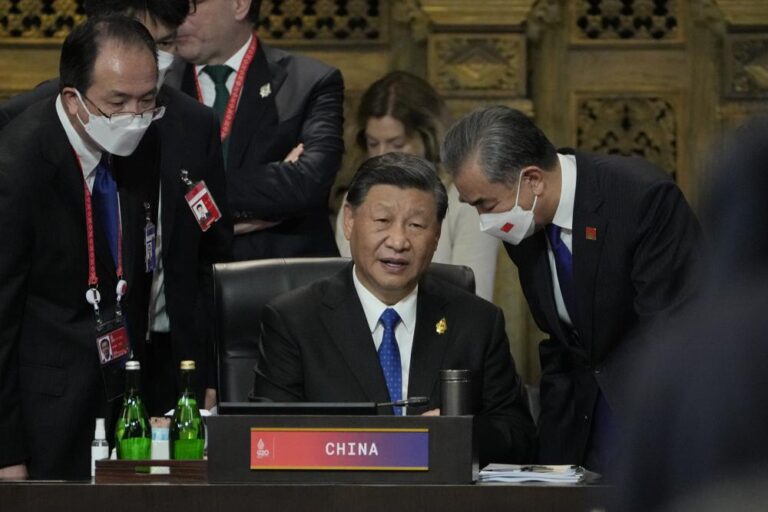Following some minor regulatory easing, China’s ruling party on Tuesday urged rigorous adherence to the tight “zero-COVID” policy in an apparent effort to influence public perceptions.
China must “unswervingly implement” the policy that mandates widespread mandatory testing and places millions under lockdown in order to try to eradicate the coronavirus from the country of 1.4 billion people and the second-largest economy in the world, according to an editorial in The People’s Daily, the Communist Party’s leading newspaper.

That comes after minor modifications to quarantine and other anti-virus restrictions were revealed last week in an effort to cut costs and interruption. China reported 17,772 new cases over the preceding 24 hours.
After only one day of closure, the main provincial capital of Shijiazhuang, which is located just outside of Beijing, has also reopened its free testing facilities. The decision to charge citizens for tests highlighted the rising financial burden the policy is placing on local governments.

Beijing has recently shut down other testing facilities as well, but on Tuesday, many were set to resume. The city of more than 21 million people still has relatively few cases, but a recent uptick has forced some restaurants and other businesses to close, while villages that primarily house blue-collar workers have been placed under lockdown.
To enter public areas in the majority of the city, a test result must be negative. In certain circumstances, the test had to be completed within the previous 24 hours. Long cold weather waits had been generated by fewer testing sites.

Around China, particularly in some areas of the vital southern financial manufacturing powerhouse of Guangzhou and other towns whose industrial bases are intimately linked to global supply networks, some lockdowns on residential compounds and entire city districts are still in effect.
According to reports, some Guangzhou citizens upset by the limitations have fought with the police. In Shanghai, the biggest city in China, there had been occasional protests all summer. Many Chinese have expressed dissatisfaction with the harsh measures, saying they have resulted in food shortages and rising levels of poverty, with factory and service employees losing their jobs because they are prevented from leaving their homes.

Chinese consumer spending decreased in October and industry activity worsened, according to government data, providing the most recent sign of the economic toll. In contrast to September’s 2.5% growth, retail sales fell 0.5% year over year as millions of people remained inside their homes.
Chinese economic growth picked up from the first half’s 2.2% to 3.9% over a year earlier in the three months that ended in September, but economists say activity was already slowing down. They have decreased their estimates for annual growth, which would be among the worst in decades, to as low as 3%.

Local party leaders are under tremendous pressure to stop fresh outbreaks, but it has recently become more difficult to predict what the central administration is saying. While refusing to abandon policies in which the party and leader Xi Jinping have heavily invested their authority and prestige, China looks to be cautiously seeking to catch up with the rest of the world.
After missing the majority of international gatherings throughout the pandemic, Xi is now present in Indonesia for the Group of 20 summits this week.
Xi and Joe Biden had a meeting on Monday outside the G-20 summit, and he is scheduled to attend the APECC summit later that day in Bangkok.


